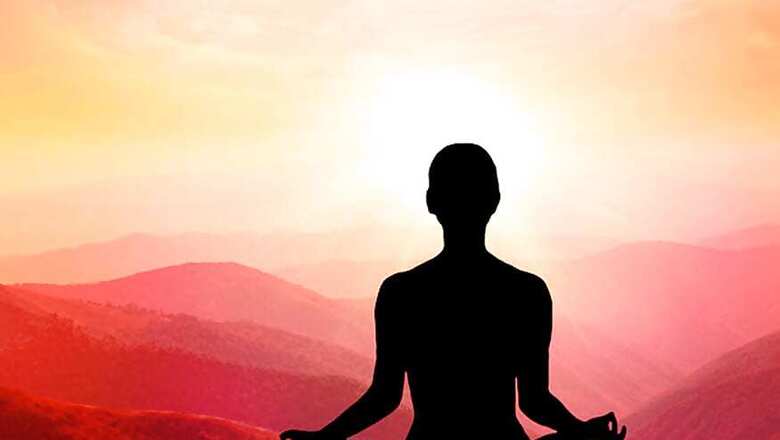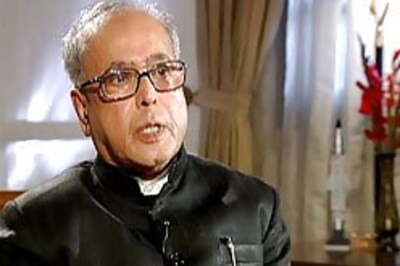
views
New Delhi: Yoga won't give you immortality but this ancient discipline of bringing union between the body, mind and spirit can definitely help you fight age - both physical and mental, say health and wellness experts.
"In my practice in India and abroad I have seen several cases where my clients have gotten better by regular yoga, pranayam and meditation," Preeti Rao, Health, Lifestyle and Wellness Consultant at Max Healthcare here, told IANS.
Regular yoga practice can help fight chronic lifestyle diseases like hypertension, hormonal imbalances, diabetes, reproductory disorders, and respiratory and cardiovascular related health concerns. Besides people with obesity, anxiety, constipation and digestive disorders can benefit significantly from practising yoga, according to the experts.
"From diabetes to high blood pressure, high cholesterol to heart problems, yoga can help you combat many such health issues that usually develop over the years. Also, arthritis is one of the most common problems among elderly people and yoga is a great way to tone it down and help the body become more active and flexible," said Nidhi Arora, physiotherapist at AktivOrtho, an orthopaedic, neurological and gynaecological rehabilitation centre here.
Founded by German orthopaedic specialist Gerd Mueller, AktivOrtho now has several centres in New Delhi and Gurgaon.
"Individuals prone to osteoporosis or are already suffering from the problem can gain a lot from yoga as a daily life discipline which increases bone density and growth. To keep a watch over increase in weight as well, yoga proves to be very helpful," Arora noted.
Yoga can improve blood flow in the body and increase oxygen supply to body cells. It helps improve balance which tends to become weak as one ages, acclaimed fitness expert and nutritionist Sonia Bajaj said.
What's more, the benefits of yoga transcends physical fitness alone.
"Yoga is not limited to yog or physical exercise," Rao said.
Scholarly studies and research in this area have strongly documented how yoga helps in improving cognitive abilities.
"Pranayama helps one to attain a better balance between the right and left-brain bringing more balance between emotional and rational thinking. Meditation facilitates a process of introspection, and brings more clarity and focus in one's life. Regular yoga also improves memory," Rao noted.
"A regular yoga practice even for just 20-30 minutes daily that is simple and involves varied breathing exercises and mediation is what I would recommend to remain sharp, alert and for a balanced life," she added.
A recent study published in the Journal of Alzheimer's Disease found that a three-month course of Kundalini yoga and Kirtan Kriya meditation practice helped minimise the cognitive and emotional problems that often precede Alzheimer's disease and other forms of dementia, brain disorders that impair the memory.
Kirtan Kriya, which involves chanting, hand movements and visualisation of light, has been practised for hundreds of years in India as a way to prevent cognitive decline in older adults.
Yoga and meditation was even more effective than the memory enhancement exercises that have been considered the gold standard for managing mild cognitive impairment, the findings showed.
"Historically and anecdotally, yoga has been thought to be beneficial in ageing well, but this is the scientific demonstration of that benefit," lead author of the study Harris Eyre, doctoral candidate at the University of Adelaide in Australia, said.
"If you or your relatives are trying to improve your memory or offset the risk for developing memory loss or dementia, a regular practice of yoga and meditation could be a simple, safe and low-cost solution to improving your brain fitness," Helen Lavretsky, the study's senior author and professor in residence in the department of psychiatry, University of California-Los Angeles, suggested.
"Yoga forms like asana, pranayama and a regular devotion towards meditation are such strong tools that they are bound to invigorate the brain, help enhance the power of the mind and stimulate the nervous system as well. Yoga should be taken seriously as results from it are long-lasting and life-changing for sure," Arora of AktivOrtho noted.
However, with many different types of yoga being practised today, it is important for you to find out with the help of experts which type of yoga meets your needs, she said.


















Comments
0 comment